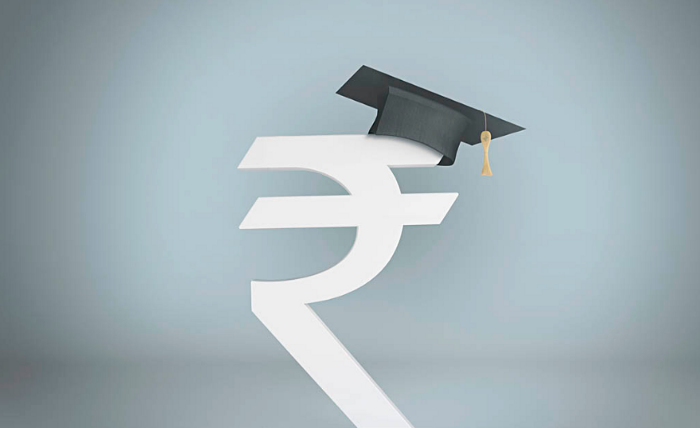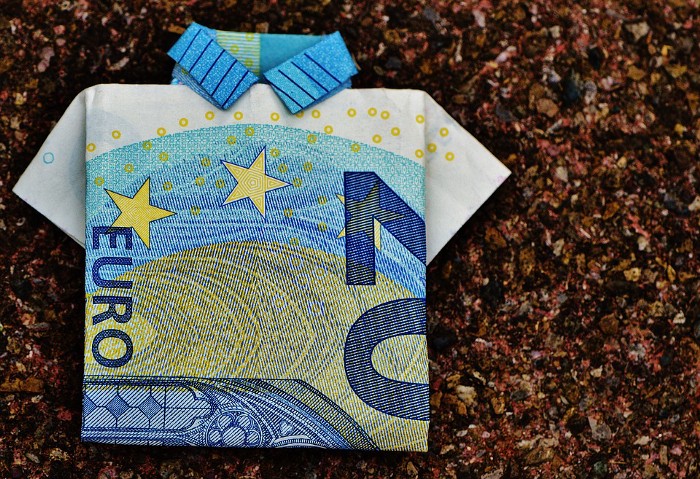
You earn barely enough money for the essentials in your life. You don’t have enough money to make a big change, like graduate education, or your own apartment, or house, or trip to Italy. How do you get to the next step, after getting a job? When your income is marginally adequate, don’t finance a fall. Keep it together and you will get there. Use the twin principles of avoiding non-essential costs and minimizing necessary costs. Cut living expenses to the bare bones so you will be able to get ahead.
Work
Work for benefits. Healthcare insurance is the most critical to your financial well-being, but others matter too. If you have a choice between a lower salary with full benefits or a higher salary with no benefits, you will be better off with the former. Then learn to negotiate raises. Keep your job until you find a better one. Learn what you can from your job before you move on. Use your special talents or skills to augment your Income. If you have worked as a bartender, you can work for parties and events. The years of saxophone or soccer lessons and camps you had as a child pay off if you can privately tutor a beginner.
Accounting and Finance
Save up and keep $500 in the bank. With $500 you will be able to get through the worst situations, like losing your job, without getting hopelessly behind. Don’t buy anything you don’t need. And define ‘need’ very carefully. When you do need something, buy it only if you can’t get It free (Freecycle) or borrow It (library). Then buy the best one you can find for the least cost possible. Research. Find the lowest prices around. Tell the sellers that you’re looking around at all sources. Use automatic payments whenever you can, for minimum cred card payments just in case you forget, and for utilities, cell phone bills and similar recurring costs.

Beware of operating costs.
Things like dry cleaning, car Insurance, bank fees, pet care, and gym memberships, all eat up your money fast. Avoid or minimize these costs. Call the Insurance company before you buy a car and ask how much it will cost to cover it. Review all bank fees, including debit card use, transactions per month, and overdraft fees before you set up an account with them.
Get one credit card and manage It well. Use It occasionally and pay it off. Once a year, don’t pay the full balance; pay it in full the second month. Otherwise you run a risk of the credit card company dropping you. Credit Is important to have and impossible to get when you really need it; when you don’t have cash and your car’s transmission is blown, or your apartment was broken into, or you broke your arm. You are also better off using a credit card for hotel and car rental payments, which will put a large hold on your bank account if you use a debit card. Credit is usually better for purchases online. If you never receive the Item or It Is not satisfactory you can dispute the charge.
Housing
Balance costs, convenience and safety, and choose. If you an share housing you will spend less. If shared housing doesn’t work, then find a place to live that Is as dose to your work as possible In your affordable range, that has reasonably close by grocery and other stores, and has a crime rate low enough for your insurance to cover you. The effort it takes to find the right place is worth it. Housing is always a big piece of a personal budget.

Transportation
And and develop a good relationship with an excellent mechanic, or become one yourself. Keep a spare key somewhere Take are of your car: change oil regularly, keep it clean, make sure the tires are in good shape drive defensively. Whenever you can, share rid Es or take public transportation.
Health
And and develop a good relationship with an excellent primary care physician. Take care of yourself. get enough deep, exercise, eat well, drink water, wash your hands often and brush and floss twice a day. Good health means more money you don’t have to spend. Keep on hand acetaminophen or Ibuprofen and an antihistamine, bandages and antibacterial cleaner.

A person’s credit score is one of the most Important parts of their financial health. Unfortunately, the average consumer may not know much about their score, or how to change it. No matter your position, you need to know what a credit score is, what it does, and how you can improve it.
Your credit score is a number that represents how much of a risk you represent. If you have a high score, you represent little risk. People with high scores generally have little problem getting a loan, and the higher the score, the better terms they get when It comes to interest rates and repayment. If you have a low score, you get higher interest rates, or are denied the loan completely. No matter what your score is, it’s always better to have as high a score as possible. Whether you are looking for new credit or not, Increasing your score Is In your best interests.
To the average credit card user, getting out of debt can seem almost impossible. More than likely this debt has been looming over your head for years now. This will continue to be the case if you don’t take some serious steps to eliminate your credit card debt Research shows that the average interest rate of a credit card is generally between 10–30%. This can make it extremely difficult to pay down your credit card balance particularly if you are like most people and only make the minimum payment. if you are only making the minimum payments even a snail credit card debt can take years to pay off. Here is a way for you to become more aggressive with your quest to get rid of your credit card debt and free yourself financially.

Identify Card With Highest interest Rate
The first step in doing away with your credit card debt is identifying which card has the highest Interest rate. This is important because you want to tackle your biggest problem first and work your way down according to interest rates Since the card with the highest interest rate is costing you the most money, it is wise to work on eliminating this debt first.
Before owning the shiny plastic
Almost any person can qualify for a credit card, regardless of his or her credit score. Internet can be used as a tool that matches individuals and credit cards. numerous websites categorize cards into balance transfer, business, cash back, low interest, low introductory interest, poor credit, prepaid, reward, student or zero annual fee. You can browse through to find the card that interests you and see the terms and conditions. Or you can type In your personal Information and let the sites search for the perfect match. Either method, the answer Is a mouse-click away.
Before you obtain a credit card, decide whether or not the advantages you will receive from its use will outweigh the extra costs you incurred in interest and service charges. Some users end up owing more in interest than original cost of their purchases. Be sure this doesn’t happen to you.
Don’t use a credit card to create an unrealistic standard of living for yourself. Sooner or later, you will reach your credit limit and find yourself unable to maintain that standard. One young man we know reached his $2500 limit on a major credit card and promptly applied for a card from another company. Reaching his limit there, he obtained a third. Now he is faced with high interest payments on his first and second cards and will soon reach the limit on his third. Because he has trained himself to live above his income, a large part of his salary goes to keep up the payments on these cards, and he sees no possibility of getting out of debt for several years It was so easy to charge things, he explains, and I bought things I probably wouldn’t even have considered buying if I’d had to pay cash.
Try to limit credit card purchases to emergencies or opportunities that will not be repeated. We all have unexpected problems that pop tip occasionally, or we find an item we have been seeking for years. These night be acceptable uses for a credit card.
The day a young person gets their first credit card is a major milestone in their financial life. Whether you are working hard at your first job, working your way through college or still In high school, having a credit card is a lot to handle.

That credit card Is more than lust a way to buy things with your signature. No matter what you buy, the bill inevitably comes. Knowing how to handle the credit line you get will play a vital role in your financial future.
If you handle your new credit card properly, you can build tip your credit score and make your future finances easier. If you mess up, you could destroy your credit score and make everything that comes after, from getting a ca loan to qualifying for a mortgage, much harder. Here are some s-nart tips to help you make the most of your new credit card.
Read the terms and conditions carefully. Note the Interest rate, the grace period and the monthly billing period.
Find the dosing date for your credit card and set a calendar reminder for three or four days later. Contact the credit card issuer if your paper or electronic system has not arrived.
Do not rely on getting a statement In the mall or your email inbox. Always follow up to make are you do not miss the payment deadline.

Interest Rates
Choosing a charge card with a low Interest rate Isa very Important consideration, particularly If there Is any chance that you will carry a balance on your revolving credit account. If you carry balances on high interest rate credit cards you can very quickly find yourself sinking into debt that you may have a hard time eliminating.
It’s important to keep In mind that many credit card companies offer very low Interest rates to attract new customers, but raise the rate after a certain period of time To avoid finding yourself dealing with an exorbitant interest rate a few months after opening a new account, you have to find out the details about interest rate terms and increases before you choose a card.
Annual Fees
Some credit card programs charge annual membership fees. The fees are often waived for the first year a new cardholder has an account with the company. Unless you read the fine print of your new account, you night not realize that an annual fee will be charged to your account each year on your anniversary date. If you don’t want to be surprised by an unexpected membership fee on your statement, find out the details of annual fees before getting a new cards
Rewards Programs
Many credit card providers offer rewards programs as a means of attracting and keeping customers When selecting a credit card, it is a good Idea to pick one that has a rewards program from which you can benefit. Common rewarr programs include: airline miles, points toward hotel stays, gift card rebates, cash back, credit for gasoline purchases, and more.
.
 Need help with Digital Marketing? Try KEYSOME
Need help with Digital Marketing? Try KEYSOME
